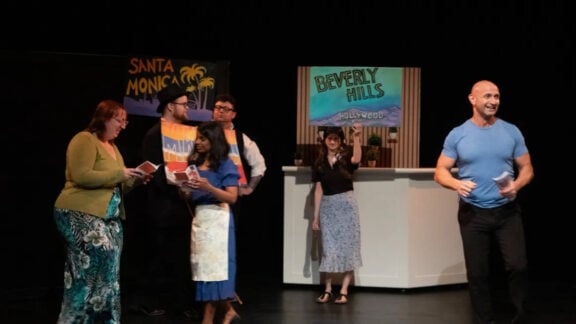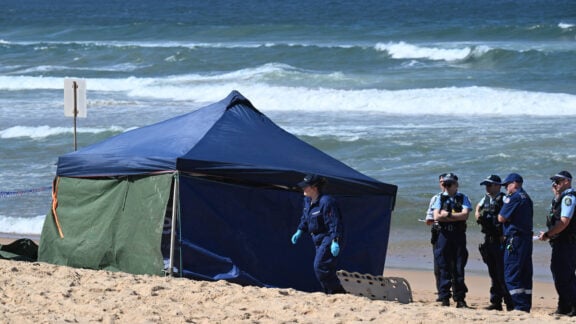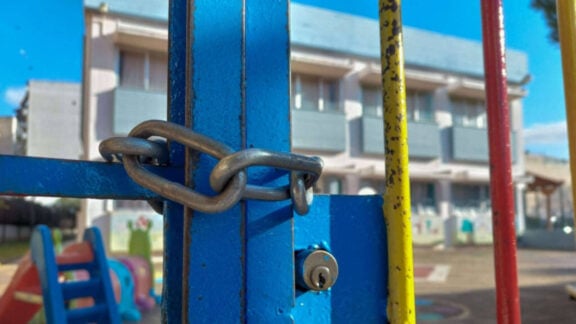New Year’s marked the end of the festive period for most Australians; for Greeks, the Twelve Days of Christmas conclude on January 6 with the celebration of Epiphany or The Lights.
Melbourne
On Saturday, January 6, on the eve of the Feast of Epiphany, Archbishop Makarios will preside over the Divine Liturgy at the Holy Church of Theophany in Frankston at 8 am, assisted by Father Doukas Georgalas and local clergy.
Following the service, the Great Blessing of the Waters will take place. The congregation will then head to Frankston Beach at 12:30 pm, where the Holy Cross will be cast into the water and young participants dive in to retrieve it.
The blessing of the waters in Melbourne will be on Sunday, January 7, at the Princess Pier in Port Melbourne. The ceremony will be conducted at the pier, at the city’s historic harbour, where once ocean liners brought in immigrants. Representatives from the state’s political leadership are expected to be present alongside the expatriate community.

Dromana
Controversial priest, Papa Lefteris will bless of the waters on the day of Epiphany at the Rosebud Pier.
The schedule includes a Morning Divine Liturgy and the Great Blessing at the Dromana Community Hall from 7 am to 11 am, followed by the ceremony at noon. Following the service, there will be a Greek Festival by the pier with Greek music by DJ Chris.”
Sydney
Thousands are expected to gather at the water blessing in Sydney on Sunday, January 7, 2024, at Carss Bush Park, Carwar Avenue, Carss Park, for a day-long celebration from 11 am to 9 pm. This is the first time the blessing will occur here after decades being held at Yarra Bay.
The ceremony begins at 1 pm, where the Holy Cross will be cast into the water for retrieval by divers. Sydney councilor Angela Vithoulkas and Paul Nicolaou, the Executive Director of Business Sydney and former president of the NSW Council of Hellenic Communities, will introduce the event.

The annual Greek Festival of Epiphany will take place throughout the day, featuring a live performances by Greek singer Stella Konitopoulou who are touring from Greece.
The entertainment will also include performances by Tommy Tsonis on the bouzouki, Theodore Skaltas on the clarinet, live music by Nikita Eleni, and various dance groups presenting traditional Greek dances. There will be over 60 stalls offering Greek foods, products, and services as well as outdoor games and activities for children.
Adelaide
The Greek Orthodox Community of South Australia (GOCSA) will host its annual Blessing of the Waters event on Sunday, January 7, 2024, in celebration of Epiphany Day. This vibrant event, attracting hundreds of visitors, will be held at the picturesque Henley Beach foreshore in Adelaide. The day’s festivities will begin at noon, with clergy, parishioners, and guests gathering at the start of the jetty for a ceremonial procession to its end, where the Blessing of the Waters will take place.

Epiphany Background
Epiphany, also known as Theophany in older texts, is a major Christian celebration especially for Eastern Orthodox, marking the baptism of Jesus by John the Baptist in the Jordan River.
It occurs on January 6, wrapping up the Twelve Days of Christmas and the name “Epiphany” comes from when the Holy Trinity was revealed, as described in the Gospels.
Around when Jesus was 30, John the Baptist unexpectedly baptised him in the Jordan River.
During this baptism, the Holy Spirit appeared as a dove, and a voice from heaven proclaimed Jesus as God’s beloved Son. This event symbolises the Holy Trinity’s manifestation on Earth, and Epiphany got its name because of this divine declaration.

The exact date for commemorating Jesus’ Baptism isn’t precisely known, but it likely emerged early in the Christian Church. By the 3rd Century, it was widely celebrated. Over time, the celebration expanded to symbolise God’s manifestation and the enlightenment brought through Jesus’ Baptism.
In the 4th Century, the Feast of Epiphany became a grand celebration in the Eastern Church, emphasising humanity’s enlightenment through baptism. In the West, Christmas on December 25 became a prominent celebration around the same time, leading to Epiphany’s separation as a distinct feast on January 6 in the mid-6th Century.








